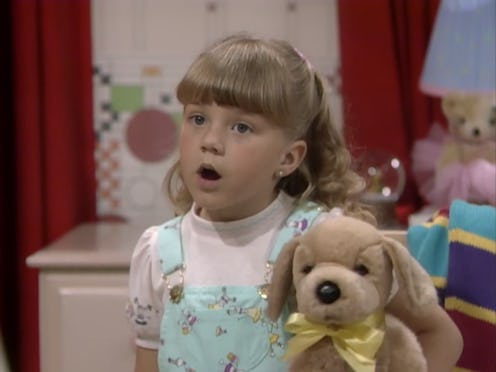Life
Kids Start Worrying About Their “Reputations” As Early As 5 — And There Are Consequences

Identity formation is a personal process that never truly concludes. Renowned developmental psychologist Erik Erikson proposed eight distinct stages of identity formation that span from infancy to late adulthood. It is a topic that has piqued the curiosity of scientists for centuries, but comparatively little is known about how children form their identities (in part due to the degree of difficulty involved with discussing such matters). A review released earlier this week hopes to shed some light on the area.
Published Tuesday in Trends in Cognitive Sciences, the review suggests one's interest in their own social status could begin around kindergarten, around the age of five — earlier than previously thought. It appears to be a directly linked to parental influence, and is believed to span across cultures, despite differing social norms and expectations. This would stand to reason as children are notoriously receptive to their parents' behaviors. Young children, naturally, want to be liked by those they admire, just like adults. The review suggests interactions within a classroom setting such as sharing toys, working as part of a team, and listening to a teacher may provide chances for them to learn about what creates a desirable reputation.
Further, the review notes five-year-olds are not only cognizant of the existence of their outward reputations, but they also likely behave in a manner that carefully alters said image. Researchers believe children will behave in certain ways in order to appear moral or socially good in the eyes of key observers, like parents or teachers. Whether children grasp that different traits are valuable at different times to different people — and whether they alter their own behavior to please these audiences — is not yet known.
"As a society, we're heavily focused on image construction and self-presentation, and our children get early, condensed exposure to the idea of image and social status," explains Ike Silver, a doctoral candidate at the University of Pennsylvania, to Science Daily. "Children are sensitive to how those around them behave, including adults who highly value their reputations."
Much of the recent conversation about image formation and external reputation development has been linked to the explosion of social media in modern society. But, as the population in question is (hopefully) not influenced by social media, it allows researchers to look into other factors that influence how one develops their identity, and the reputation they want to broadcast early in life.
The impact social media has on young people is an emerging field of focus, but preliminary research has already resulted in some troubling (and perhaps unsurprising) results. A survey conducted by the U.K.'s Royal Society For Public Health (RSPH) not only found that an unprecedented 91 percent of people between the ages of 13 and 24 use social media, but that using it for more than two hours a day is linked with an increased risk of anxiety, depression, and poor sleep. Instagram, the most photo-heavy social media platform, was found to be the "most negative," according to the survey. Young children make up one of a few populations whose behavior can be studied completely unaffected by social media.
Moving forward, researchers say, the hope is to investigate how the formation of one's reputation is influenced by social environments and a highly image-conscious society. Silver explains to Science Daily, "As we start to understand that reputational strategies emerge before the age of 9 as was previously believed, the next logical question is, 'what happens even earlier?'"
It is hard to think of an aspect of life that is completely uninfluenced by social media nowadays, but people have always care about how others view them. Coming to the realization that others do have an opinion of them starts young, it would appear.